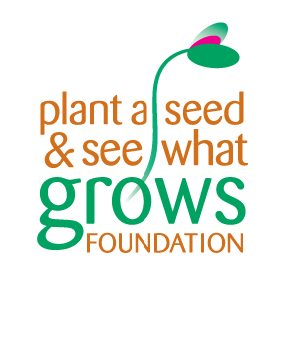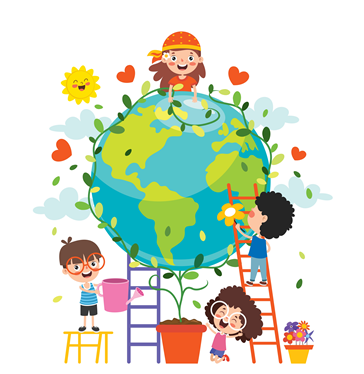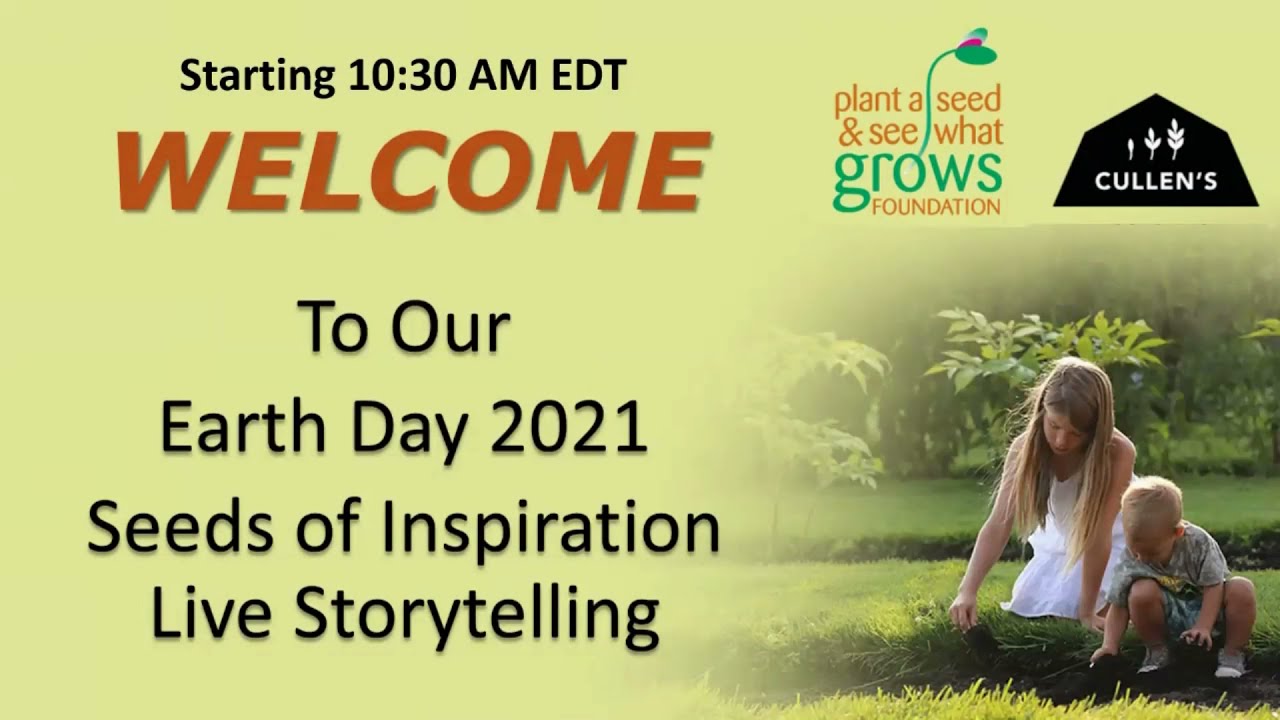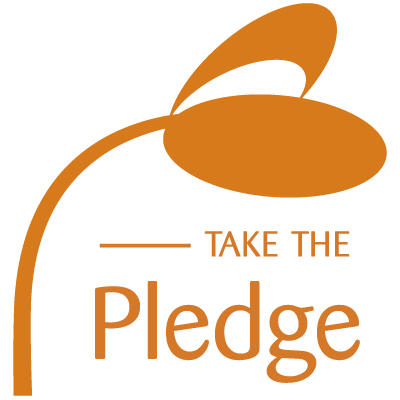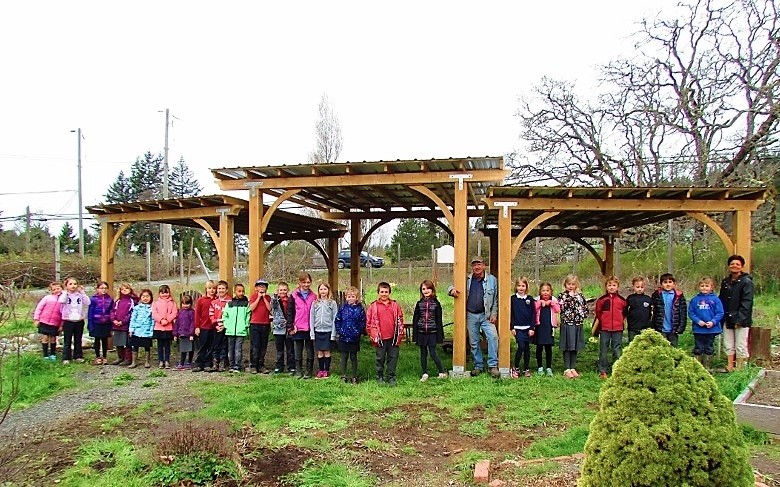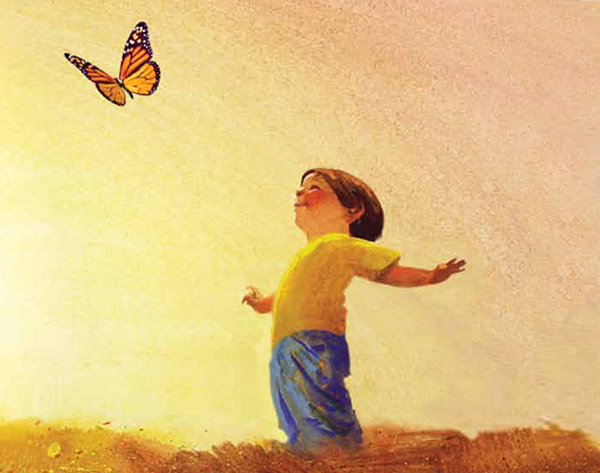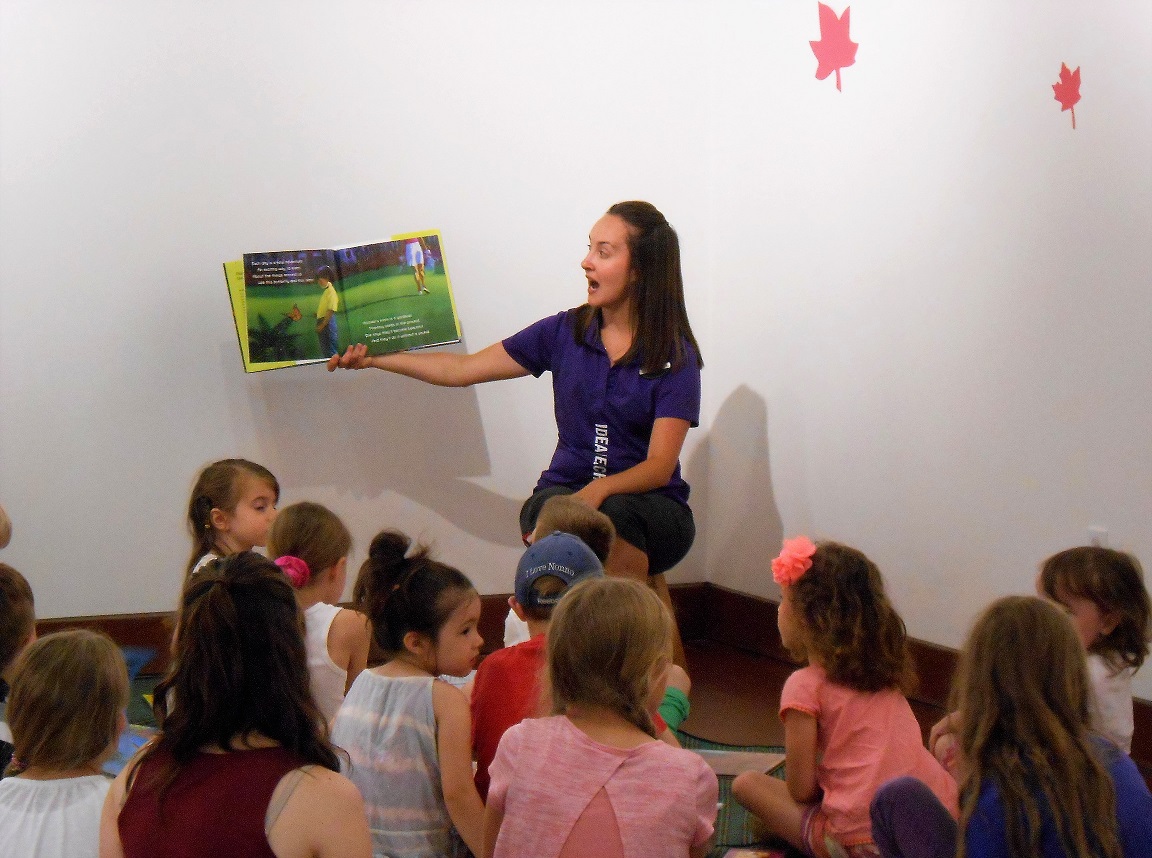Given the reality of the global pandemic, online or distance learning for many students has increased in its popularity.
But even before the current demand for online learning, we saw the opportunity to leverage the advantages of this method of learning to incorporate outdoor experiences through, you guessed it — school gardens. Thanks to our partnership with the Encompass School this prospect is now a reality for many more students. Encompass School, within the Coquitlam School Board district, offers “distributed Learning Online Program that provides home learning support” from Kindergarten to Grade 9 and a blended model for Grade 10-12.
Students enrolled in Encompass benefit from a learning environment where they can receive one-on-one academic support, a flexible schedule, and an emphasis on social-emotional learning. The program has a mix of students who are young athletes, artists, some with significant learning and development needs and some who just prefer the independence that this kind of learning provides.
What is distance learning?
According to the provincial website of British Columbia, “Online & Distributed Learning is a classroom alternative. In this style of learning, students can connect with their teacher from home and work towards meeting the goals of their education program as outlined in their learning plan. This approach is called distributed learning (DL).”
Currently, there is an increased demand for this type of learning alternative. In fact, Encompass has reached its full registration capacity for this school year alone.
Meanwhile, distance learning or not, more teachers are now compelled to use and get accustomed to new technologies. They will have to find additional resources to match their individual approach to teaching.
How Encompass’ distance learning converges with the benefits of real time outdoor experience such as a school garden
In partnership with the Foundation, their Parent Advisory Council and other community-driven businesses, the Encompass school community has started their school garden. They also purchased self-watering planter boxes, por-mix organic soil to grow vegetables (potatoes, garlic, peas, onions beans, tomatoes), herbs, strawberries, and sunflowers.
Like our recent school garden in Deer Lake School, Burnaby, BC, this newly funded project will connect cross-curricular outcomes in various grade levels and enrich the educational experience of their students. Students will be connected to agriculture and the natural world so that they, in turn, will be able to see their interdependence with the land. It will instill a deeper understanding of the larger world, food sustainability and aligns with the First Peoples Principles of Learning: holistic, reflexive, reflective, experiential, and relational.
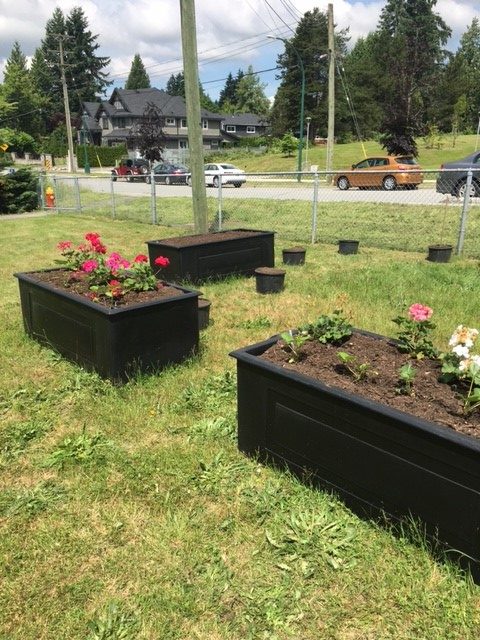
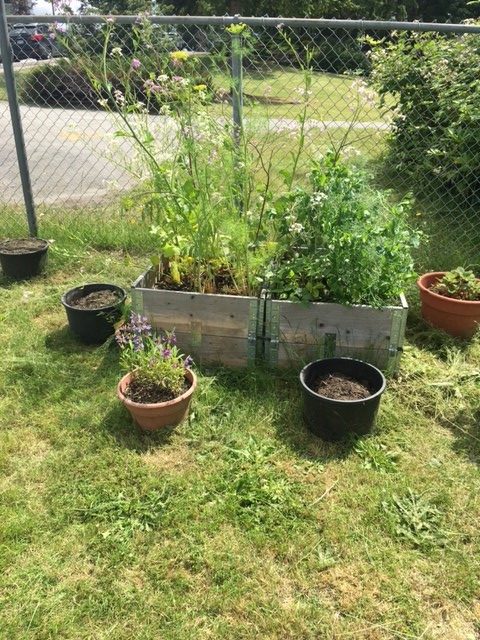
We were assured that this project was poised for success with the school’s focus on the environment. In the past year, the school community worked closely with the city of Coquitlam and Simon Fraser University to take care of local areas such as Como Lake and Nelson Creek. Their students were part of two restoration projects where they cleared invasive species and planted trees. The staff worked closely together and participated with their students to implement projects that improves their local community. The Foundation was also pleased to work with Nicole McKenzie, who at the time of the school grant, was the lead volunteer for the school garden. On June 23, 2020, the City of Coquitlam recognized her contributions in the 2020 Environmental Award in the educator category.
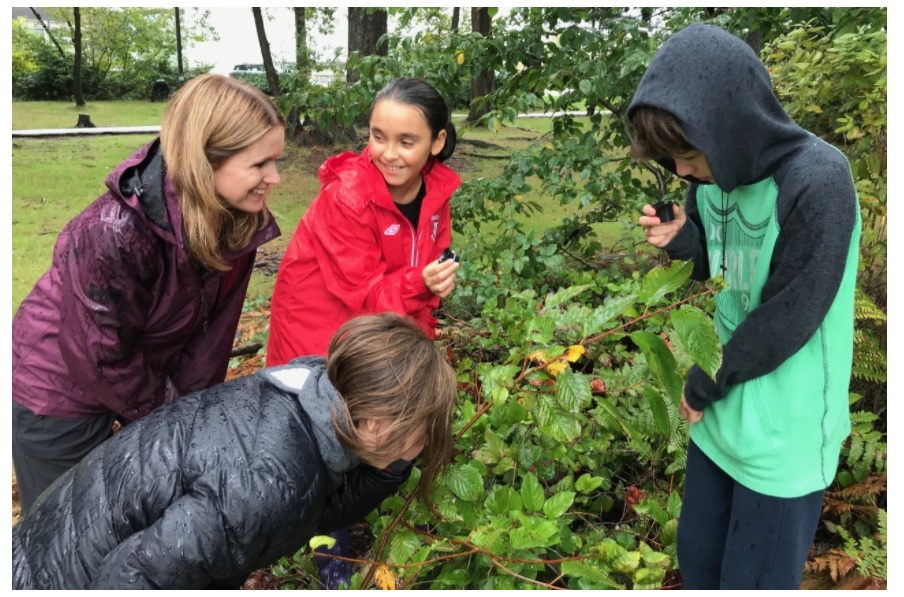
Here’s Nicole McKenzie (left) with her students during an outdoor class.
“The school garden brought students and staff together in an interconnected way. Many children became inspired and started their own gardens in their homes and looked for ways to support natural community initiatives like Adopt a Trail. The pandemic may have changed the way that we incorporate the garden in our daily learning experiences, but it won’t stop Encompass students from caring for the natural world.” – Nicole McKenzie, previous Encompass teacher and lead volunteer.
In addition to the school garden funding, the Plant a Seed & See What Grows Foundation also provided its Seeds of Inspiration education resources for their K-Gr.1 and Gr.2-3 students. This kit includes the children’s books written by Roland Gahler, workbooks, and organic seeds. For more information on this no-charge resource for Canadian schools, please click here: https://seewhatgrows.org/seeds-of-inspiration/ or for French materials, please click here: https://seewhatgrows.org/les-semences-de-linspiration-francais/
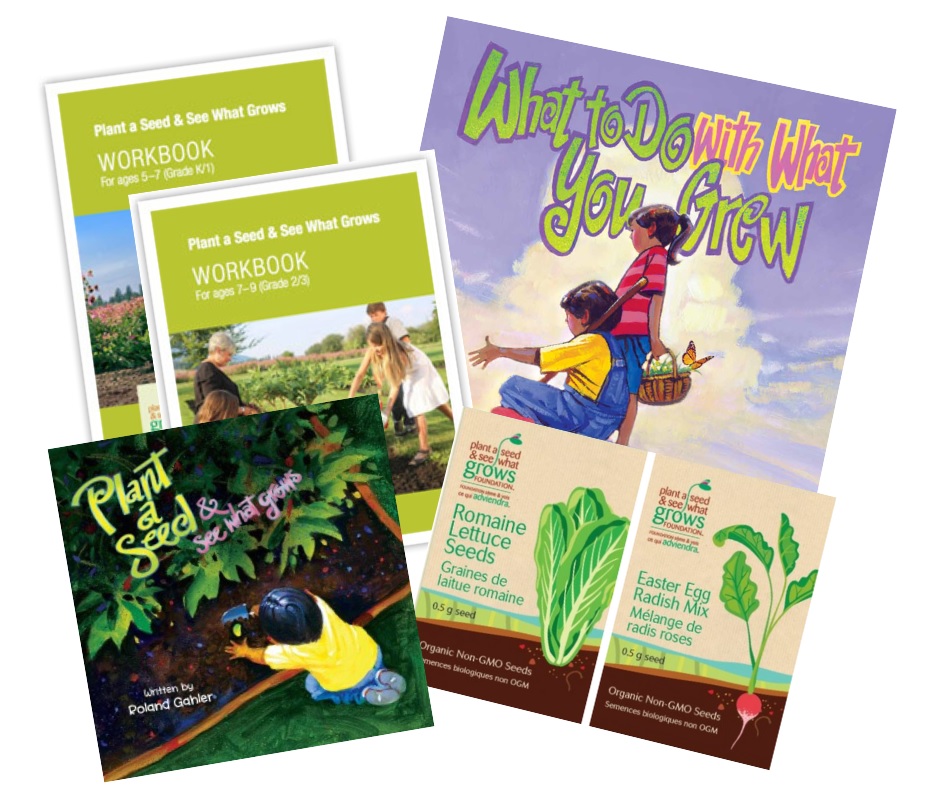
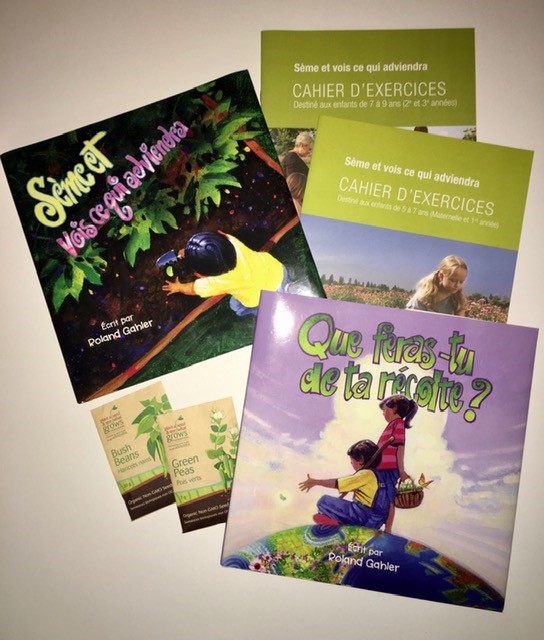
With the COVID-19 guidelines now in effect in the school, it will be interesting to see how the school community comes together to meet their objectives with the school garden through distance learning.
For more information on the Foundation’s work, please visit: https://seewhatgrows.org/programs/
To help the Foundation continue it’s work to provide seed-to-table fun experiences for children, please consider to donate here: https://seewhatgrows.org/donate/ It’s easy and safe to donate.
For fun ways to raise funds for school gardens, please click here: https://seewhatgrows.org/create-a-garden-campaign/
